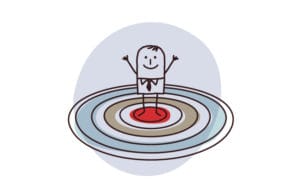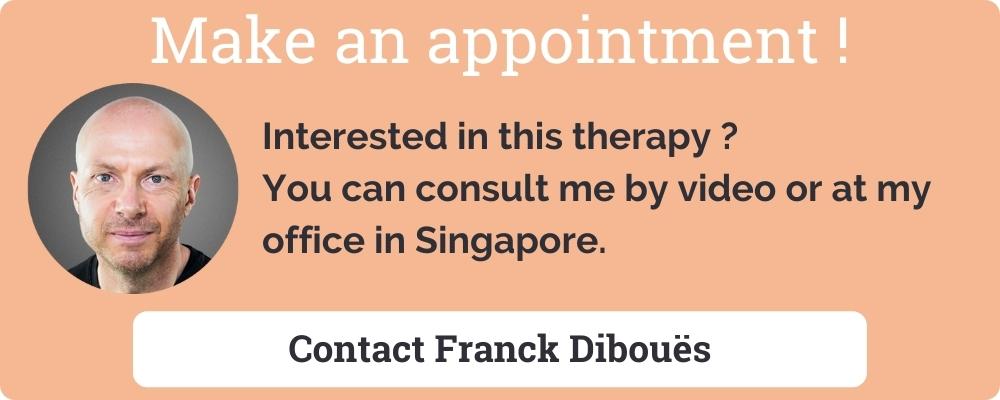What is Cognitive Behavioral Therapy (CBT)?
Cognitive Behavioral Therapy, also known as CBT, is brief, scientifically validated psychotherapy. It aims at changing the maladaptive behaviors, ideas, and emotions that handicap you in your daily life. For example, having an exaggerated fear of flying, which prevents you from taking beautiful trips, having too much fear of public speaking, which can limit your career development… There are many examples of behaviors that can be improved through CBT.
What disorders can be improved by CBT?
Anxiety disorders such as generalized anxiety disorder, panic attacks, phobias (such as social phobias, erotophobia), obsessive compulsive disorder (OCD), depression, self-esteem problems, some eating disorders…
What are special features of CBT?
CBT is short therapy. A few weeks to a few months of treatment is often sufficient. Depending on the situation, it may take longer. The therapist will take care of a problem, a symptom, with the objective of making it diminish or disappear if possible. We are not going to work on the causes of the problem probably related to your past, but focus on strategies to solve the problem. Here and now if possible. The goal is for you to find or regain autonomy in daily life in order to facilitate and restore relationships with yourself and others.
Cognitive and behavioral therapy will always start with the analysis of the problem, behaviour or symptom. Then different steps will be taken such as working on :
- False beliefs about inappropriate thoughts that generate stress and failures or about automatic thoughts that can also generate stress and failures
- Emotions that can be inappropriate, exaggerated, painful
- Behaviors that need to be changed if you want to regain more choice and freedom
- Assertiveness, self-esteem and self-confidence are often the subject of work sessions
- Measurements will be taken regularly to assess how far you have come, what progress has been made and what remains to be done

How does CBT work?
We will use a set of techniques that are at the heart of CBT. These techniques will be based on your thoughts, behaviors and physical sensations. Once the problem has been identified, we will develop a care goal together. This means that you will need to test new behaviors between sessions. You will need to make new experiences. It is not a question of miracle recipes, but of working during the sessions on the emergence of new behaviors that will be tested in real life. It is frequent, for example, that we test the changes in imagination or role-playing to take action in a second step when you feel ready. My job is to guide you, to advise you, to encourage you during the sessions so that you can progressively modify your thoughts and behaviors to overcome what you no longer want.
Liens amis
Présentation des TCC par le Psycom
Bibliographie



